It feels natural that my first post on this blog is a media reflection post – I’ve long since wanted to write about the many thoughts I have in my head about the things I love, as I similarly do with the stories that I create. Looking back at the short time I wrote about anime when I was younger, maybe it was in some ways guided by the desire to be seen and even validated. But even so, it was fun, and it felt like I could more freely express myself. Now that I’m a lot older, I’m (hopefully) a bit more in tune with my own feelings and my own place in the world. I’m okay with not being “seen” by a lot of people, in fact, I might prefer that in a lot of ways. It’s much more important to me that I’m getting something out of merely writing about my thoughts, regardless of how it’s seen. Though, if it’s able to connect with those that can understand, then that’s always a good thing, isn’t it?
At the point where I’m at in life currently, I’ll be spending more time than usual watching/reading various things. I’ve been taking some much needed time to myself, to do the things that speak to me and make me happy. I’ve been left pretty burnt out and life/people weary with recent events, and getting back into media has been a warm reminder that maybe, not everything’s so bad after all.
But enough about all that. Let’s get into what I’ve been able to experience in the month of June.
June was a return to the theaters for me – prior to this month, I wasn’t too interested in going out to watch movies in theaters unless I was asked by a friend. But, I’ve recently come to appreciate the charm in just being able to separate myself from everything and enjoy the experiences that theaters have to offer. That being the ambient sounds, large display, and of course, the overpriced food and drinks. Just being able to go by myself and get away from everything even for just 2 hours has proven to be a really enjoyable experience, and I’m sure to return for the rest of the movies I have planned.
While this wasn’t technically in June (I know, cheating already), this was on the night of May 31st, so hey, close enough. My first foray back to the theaters was Haikyuu!! The Dumpster Battle. I’m actually glad I watched this in theaters rather than the usual “I’ll stream at home whenever it’s released”, because this movie really did play to its own unique strengths of being in theaters. Every impact of the ball, every squeak of the shoe, rang with a clarity and intensity that I couldn’t have imagined experiencing at home. Haikyuu’s sound design and direction has always been great, but there’s nothing like almost feeling like you’re on the court.
It’s been almost 4 years since I’d seen the Karasuno boys, so basically when Haikyuu had last aired back in 2020. But even so, things didn’t feel unfamiliar at all watching this movie. In fact, the movie actually spends no time retreading any ground or even relaxing before going into their next match. I can kind of get it, these matches pretty much a this is it type deal for the boys, but my own media priorities have come to really appreciate the lived experiences of the mundane or everyday. The moments in between the matches where they might be hyping each other up or trying to conquer their own fears, those hidden moments of uncertainty and difficulty that characterize our performances on the stage, or I guess court in this case. But, the boys are here to play and there might not have to be any words expressed about their situation. The fans should know as well as the people on the court that this is the ultimate, so let’s play some volleyball.
It’s pretty apparent at this point that Haikyuu is at its final stretch – a culmination of our boys’ emotional journeys and a resounding exclamation of the joys of volleyball. The matches can almost feel like an earned victory lap at that point, but The Dumpster Battle seemed to have known that and took every step to try and convince us that the matches aren’t given, they’re earned. The match was its own intense journey, full of individual moments where players got to shine, with Hinata making his jump against all odds being a particular highlight. There was some much appreciated life breathed into Nekone, and Kenma in particular. I actually was expecting his own character arc to be resolved a bit differently, but seeing how he and Kuro were able to share their own special moment of warmth, I can’t really complain.
I think I would’ve liked the movie to be a bit longer, given the precedent set by previous seasons. It might’ve given some space for other, smaller moments to shine or for other characters to have their own time in the spotlight. But regardless, I had a really great time watching this in theaters and I’m sure I’ll be back to cheer on our boys when they make their return to the big screen.
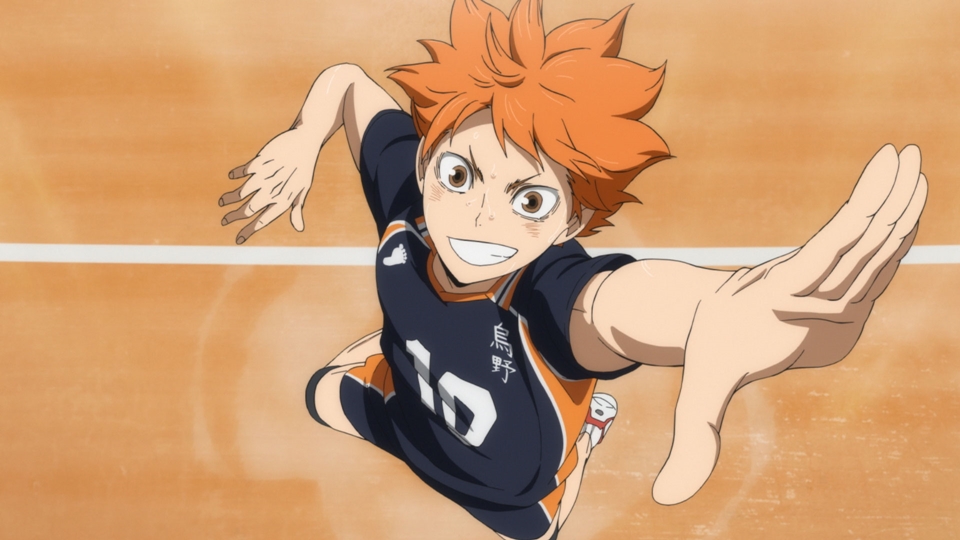
The ongoing Studio Ghibli Fest also gave me more than enough pull to return theaters along with Haikyuu. Admittedly, I’ve always liked Ghibli films when I was younger, but I think many of the more subtle nuances were lost on my younger self, and whatever priorities I could understand at the time weren’t particular ones that rang true to me. It wasn’t until I revisited the films and experienced the phenomenal Kiki’s Delivery Service during college that I really came to appreciate the craft, talent, and heart that lies in many of the studio’s works. Even more so now, I’ve come to understand and appreciate a bit more the beauty in restraint, the life affirming joys that lie in the cracks between our peaks, and the complex worlds that lie behind our unspoken feelings. It’s something I’m trying to integrate more into my writing and my current work. My first work was more of an emotional catharsis or outcry, with not much of a showing of restraint. I still love my first work of course, but as I continue to grow, I’ve come to realize a lot more about the ways that we express ourselves.
But this isn’t about Kiki, as phenomenal as it is, or about my own writing, as incredi- yeah no, just kidding, I think that has a long ways to go. This is first about The Secret World of Arrietty, which proved to be a gift to watch in theaters in its own way. This shouldn’t come as a surprise, but Arrietty’s world is beautiful, wondrous, and almost at times haunting given the world view of our main characters. It’s really incredible that Arrietty and so many other Ghibli films are beautifully crafted in the ways that they are. The animation and art design is incredible, the soundtrack is evocative, and every corner of the house that Arrietty and family resides in has its own breadth of detail. When Arrietty traversed the tunnels behind the walls or when she climbed the vines that sprawled the side of the house, I found myself just silently in awe.
The premise is one that I can easily see being romanticized in fairy tales – tiny people wondrously and magically traverse the unseen corners of the home, taking bits here and there or maybe leaving a trace of their presence for the residents to discover. While enough of that wonder is there for children to appreciate, this film takes a much more mature approach in depicting the lives of these tiny people or “borrowers”, as one that face their own deal of hardships and difficulty. Arrietty herself is on the cusp of becoming more independent and shouldering her own responsibilities as a borrower, with the shield of her own innocence as a child no longer being there. As she begins to learn about the circumstances around her family’s survival, she comes face to face with the difficult truths about her kind and the consequences of her own actions.
Arrietty’s character was easily the highlight of this movie’s writing, with the other lead, Shou, I thought being the weaker of the two. I actually think Shou’s gradual understanding of Arrietty’s circumstances and resulting strength that she shows makes a lot of sense and is powerful to see when dealt the difficult circumstances that he faces. But I did feel a little detached from him comparatively since I would’ve liked to know more about him and his vulnerabilities. His medical circumstance is a difficult one, not one that can be easily placed into words. That difficulty and uncertainty is something I’d like to have seen conveyed or depicted more through grounded moments regarding his family. But, this is a movie mainly about Arrietty, not Shou. And the movie really did wonders with Arrietty’s character. The way she came to realize the consequences of her actions and the subsequent attempts to fix things felt real and human.
Arrietty was overall delight to watch, and if it’s anything to go by, I’ll be having a great time this year in theaters with the rest of the Ghibli films being shown.
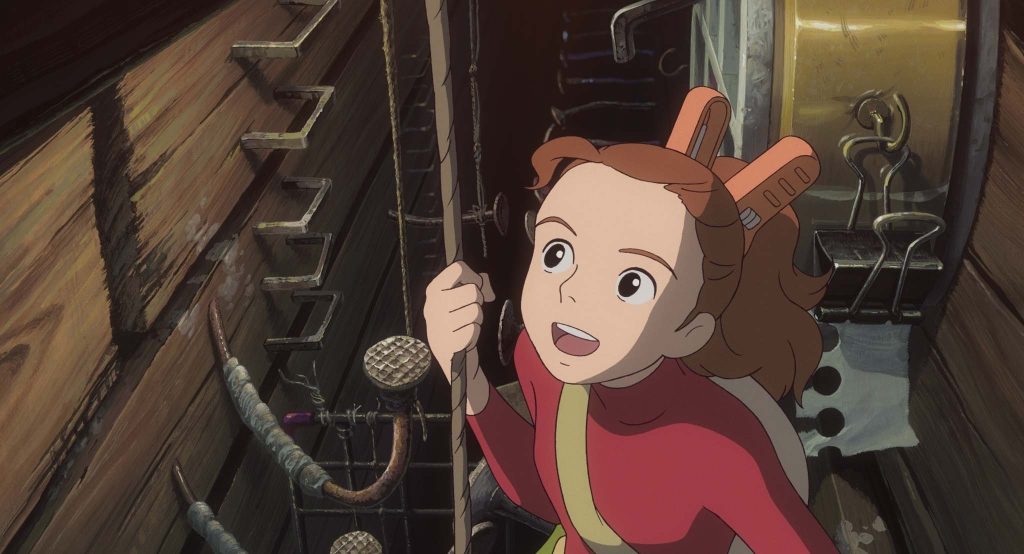
Following not long after Arrietty (like, I’m talking 2-3 days after), I watched the next movie in the Studio Ghibli fest catalog, When Marnie Was There. With how I’ve been feeling and with recent events in my life, I’m a bit of a sucker for the “weary character moves to the seaside to heal” type stories. This was much more of a “tender” story than Arrietty, with Anna (the main character) struggling to find the strength to face her inner strife.
The world and environments that Anna inhabits was just as beautifully animated and drawn as Arrietty’s, with the gorgeous marsh house being a highlight. It wasn’t difficult to get immersed in the fantastical aspects surrounding the marsh house. I mean, look at it. What else could you expect lol. The town was beautifully crafted and even the subtle details in Anna’s aunt and uncle’s home lends itself to a warmth and kindness befitting its owners.
I’m not sure if I could have understood the weary and worn Anna as much as I did if I hadn’t watched it at the time that I did. While I still have some love to give (I hope), much of it has been worn away by recent events. Anna, deep down, wants to love and be happy, but it’s just really, really difficult when the path that she’s walked has been one of constant disappointment. Forgiveness and acceptance isn’t just a sudden realization that we come to and then everything’s all good. It’s a long journey of disappointment, acknowledgement, and pain that we might never really fully be able to leave behind. Eventually, even the anger and resentment starts to fade away, and we’re merely left as a tired soul.
Marnie, the other lead of the film, comes to accept this disappointment and pain far sooner than Anna, but as is in many of the uncomfortable truths of our lives, acceptance doesn’t mean that our difficulties go away or that we’ll always be happy. Marnie and Anna never intend to hurt or abandon each other, but sometimes it’s just the natural consequences of how we are and live. It only hurts because we care, and because we care, the film affirms that those moments of warmth and connection are truly worth it, despite the inevitable hurt. And while I’m still trying to remind myself that this is true everyday, thankfully this film does give me a bit of hope that I too can one day come to better accept things as Anna did.
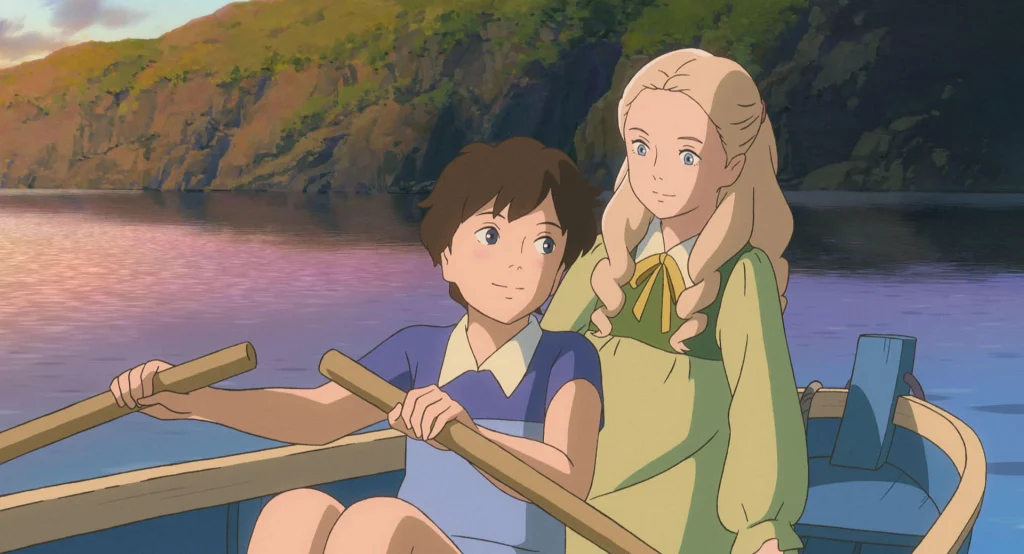
The last anime film (not last film, we’ll get to those later…) that I watched this month was Gainax’s Royal Space Force: The Wings of Honneamise. There’s been a lot written and said about the talent behind the film and the wonder of its production in other corners of the internet, so I’ll just talk about my own personal experience. Even as someone who’s not really particularly into sci-fi, space, or the related technology, it’s hard not to appreciate what was crafted here. Every sprawling city scape, backdrop of machinery, and even small character details is a wealth of creative design – so much so that I can’t help but be enraptured.
The world is written as sharply as it is visually crafted, with its characters mired and disillusioned by a world whose callousness is fittingly reminiscent of our own. Advances in humanity and semblances of peace are weighed down by political and societal endeavors, friends and teachers can just one day lose their life in a failed experiment, and setbacks seem almost ingrained into every aspect of individual expression. The space force itself has its budget cut, its members often lose their lives, and none actually believe that it will amount to anything. As melancholic and honest in its depictions of life as this movie is, it never actually feels like concession. There’s always a flicker of hope, warmth that can be found in hoping that one day, the world might be a better place. Day by day, we make a bit more progress and there’s something special that can maybe be found in the people that surround us.
The film can seem bleak, but it’s never hopeless. It’s a hope that’s tempered by a keen understanding of the hardships of the world, one where we might one day find reason and connection despite our callous world.
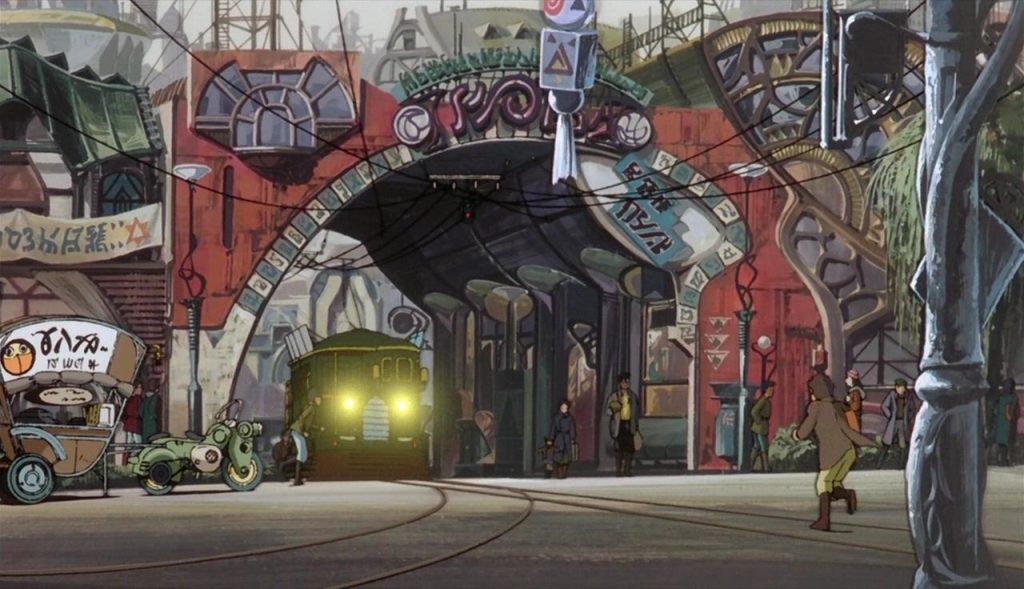
And now we move onto the seasonal anime, which just so conveniently happened to mostly finish at the time of writing this. I used to keep up with a lot of airing anime, with much of my interest and time invested in exploring the various catalog of shows every season. While I still keep up to date with what’s airing, my priorities have shifted as I’ve gotten older and I really only watch shows that I can really become invested in and think are worth my time. That usually results in me watching on average… less than a show per season? Which, I’m honestly okay with. There are new shows that usually come out when I least expect it and are always a pleasant surprise.
One of those shows was Yuru Camp, back in 2018. It’s one of those rare shows like Bocchi or Frieren that are crafted with so much love and passion, and just line up perfectly with many of my media priorities that I can’t help but be reminded of why I love the medium. Yuru Camp is a wealth of warmth and treasures, simultaneously illustrating the quiet beauty of a night in nature to oneself and the joys of sharing in one’s passion with others.
Rin is almost like my spirit animal – she’s someone who often enjoys being by herself, doing the things she loves, and appreciating the quiet beauty of the current moment. And while Nadeshiko and friends are different in a lot of ways, Yuru Camp handles their own individual approaches to camping and life in general with grace and understanding. Nobody invalidates or intrudes on Rin for wanting to be by herself and doing the things she enjoys. And likewise, Rin can simply appreciate that people can find joy in her hobby in their own way. Yuru Camp understands and accepts that and chooses to build on that mutual understanding and appreciation, with Rin slowly learning the joys of an exuberant night with friends, and Nadeshiko learning to find the peace in quiet beauty and time to oneself. The show was a celebration of the different ways we express ourselves, and the connection we can form through shared passions. And I won’t get started with the Yuru Camp movie, which is absolutely phenomenal in its own right and pretty much a perfect capstone to the themes of the show by telling a different story.
Yuru Camp Season 3 saw a change in studio, and with it a change in aesthetic and more importantly, a change in creative direction. Unfortunately, I did think Yuru Camp lost a bit of its shine with this shift. The direction wasn’t as sharp or snappy, the visuals didn’t quite matchup to the beautiful nature backdrops of the first two seasons, and there seemed to be a shift in the show’s priorities. Season 3 seemed to be a lot more focused on strictly the activities themselves rather than the intimate connections and inner working behind the camping. That’s not to say that this season was completely bereft of the emotional insight or clarity that characterized the prior seasons and movie. I thought there were still scatterings of quiet beauty and great moments throughout. But, I did think this season was a step down. Which, given the heights of what came prior, isn’t a bad place to be at all. Yuru Camp season 3 was still Yuru Camp, and that’s still a really special thing.
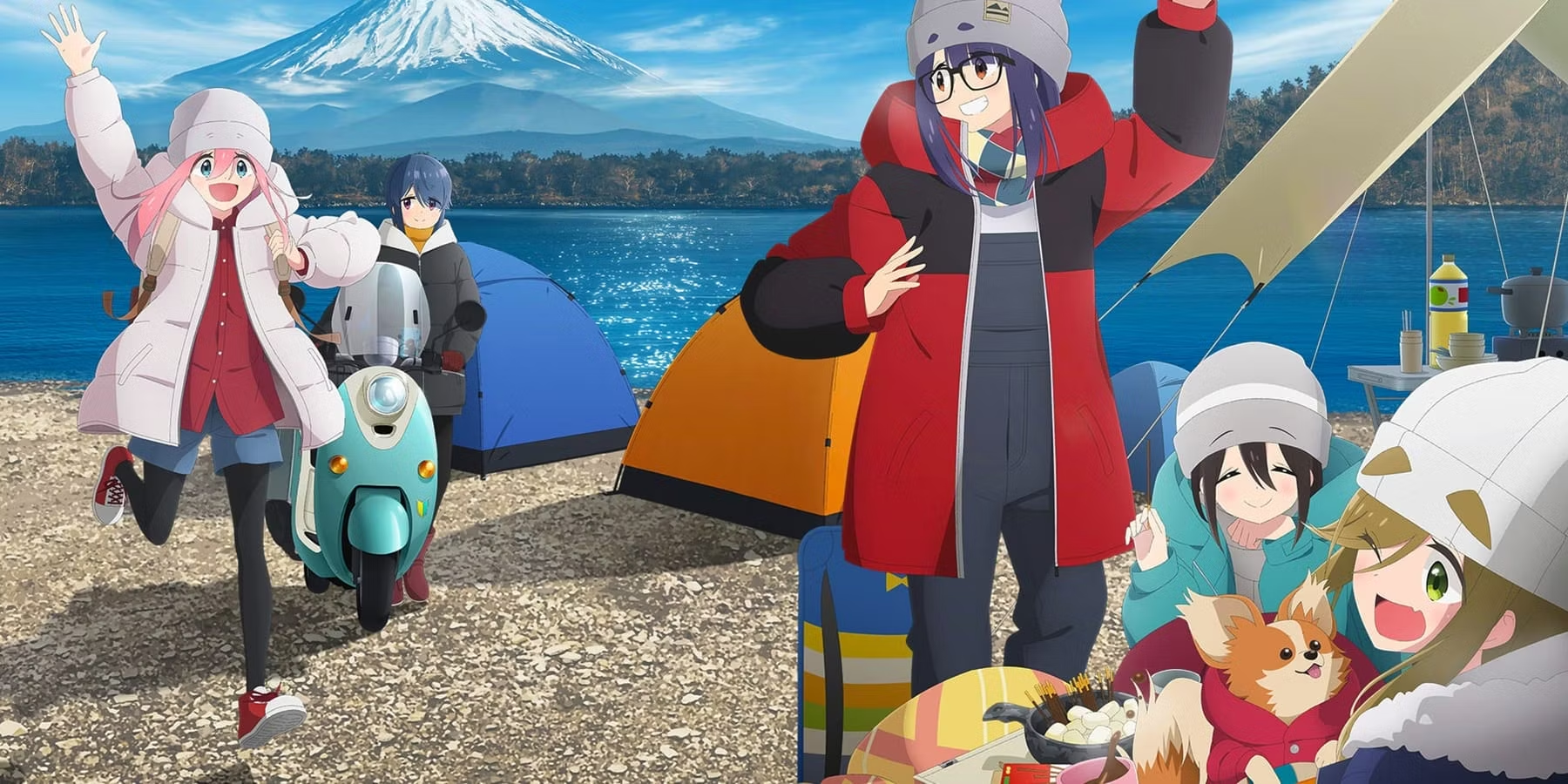
And while Yuru Camp Season 3 did feel like a step down from its predecessors, Hibike! Euphonium Season 3 managed to soar the sonorous (ha, get it?) heights of its predecessors. I absolutely loved the first two seasons of Euphonium, they were absolutely beautiful in animation and visual design, the interpersonal drama was sharp and rang true to life, and full of messy and believable characters. Kumiko in particular has always been the highlight, she’s almost the perfect protagonist to follow around – refreshingly snarky and blunt while still being grounded in clumsiness and vulnerability. And while Naoko Yamada’s Liz and the Blue Bird didn’t center around Kumiko, it was transcendent all the same, a remarkable, but delicate film of beauty and restraint.
Season 3 follows Kumiko in her third and final year of high school, with her new role as the club president bringing its own share of difficulties on top of the ones she faces at the cusp of her time as a student. I was honestly unsure of how they would manage to resolve everything with Kumiko’s future, her responsibilities as president, Kitauji Band, new first years, among other things. But, it seems like my fears were unfounded as Euphonium’s third season was about as good as it could’ve been.
Kumiko’s role as the club president actually lends itself to character drama that feels much more personal. It’s not her official job, but it’s partly a responsibility that she, as the club president, try to look after, understand, and mediate between the members of the club. Kumiko is kind and earnest, but also believably anxious and unsure. The weight of the club’s aspirations and the intricacies around navigating people’s feelings don’t become any clearer as Kumiko takes on more responsibility.
Sometimes, there just really aren’t any easy answers. Some will fail their audition or lose their solo spot, others will be unable to carry the burden of what has to be done for nationals, and many will falter under the pressure of competition and a strict regime. Euphonium really understands that, and all Kumiko can really do is to be herself, be earnest, and try to be heard. Euphonium knows that while Kumiko’s attempts at connection don’t make their problems go away, there’s still something beautiful and special in that desperate cry for understanding. To accept that we don’t know what to do, but we want to try. That there’s something universal and human in that.
If it isn’t already clear, I really like Euphonium, and I’m a bit sad that it’s finally come to an end. But like all things dear to me, I’m also happy that I was able to experience it, despite the hardships that KyoAni must have gone through. If this season is anything to go by, there aren’t any doubts that KyoAni will continue to do their thing, masterfully using the medium of anime to tell truly special stories.
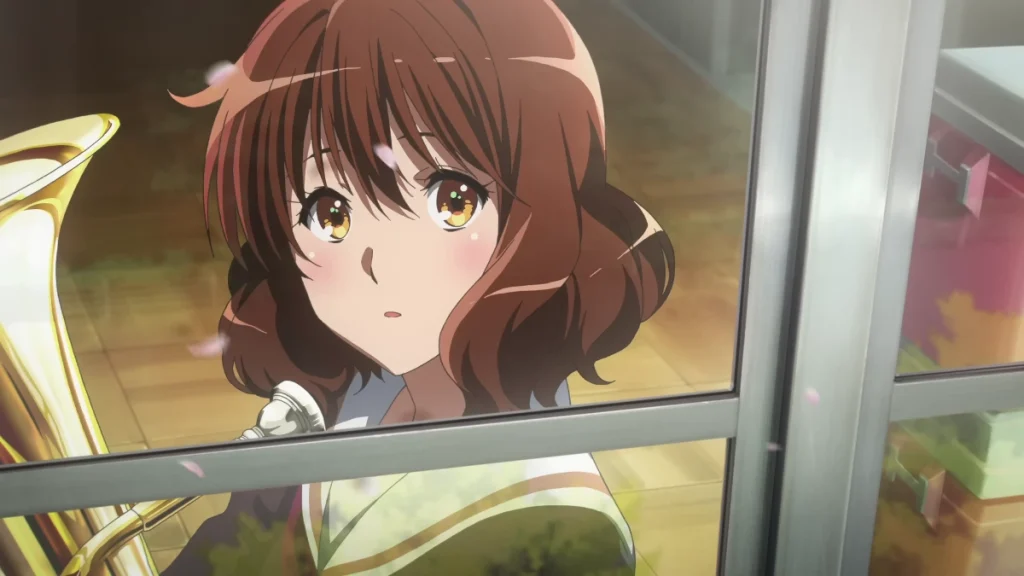
Moving on from anime but keeping within a medium of animation, I’ve been picking up my watching of Steven Universe, making my way to the end of the third season. I have a lot of memories of watching cartoons as a kid, but none had struck me as being particularly emotionally resonant and empathetic, not in the same way as Steven Universe has been so far. It’s honestly pretty remarkable that a show like this exists, and I kind of wonder how I would’ve felt about it on Cartoon Network as a kid. But it’s possible that I’m only able to appreciate the warmth and kindness that lies at the heart of this show now that I’m older.
While it is a kid’s show (with Steven’s own character initially embodying much of the kind, earnest innocence of those shows), it doesn’t shy away from many of the uncomfortable truths of its world. Things are never perfect in their lives and even those that are perceived as strong and kind can feel weak, confused, and mean. The show navigates through the deeply personal and rich stories of its characters while never losing heart and the hope that we can come to understand each other.
I honestly wasn’t expecting to like it as much as I do, but it’s hard not to when its so full of emotional clarity and kindness. Steven and his three moms/big sisters are really doing their best, and I love them for it.
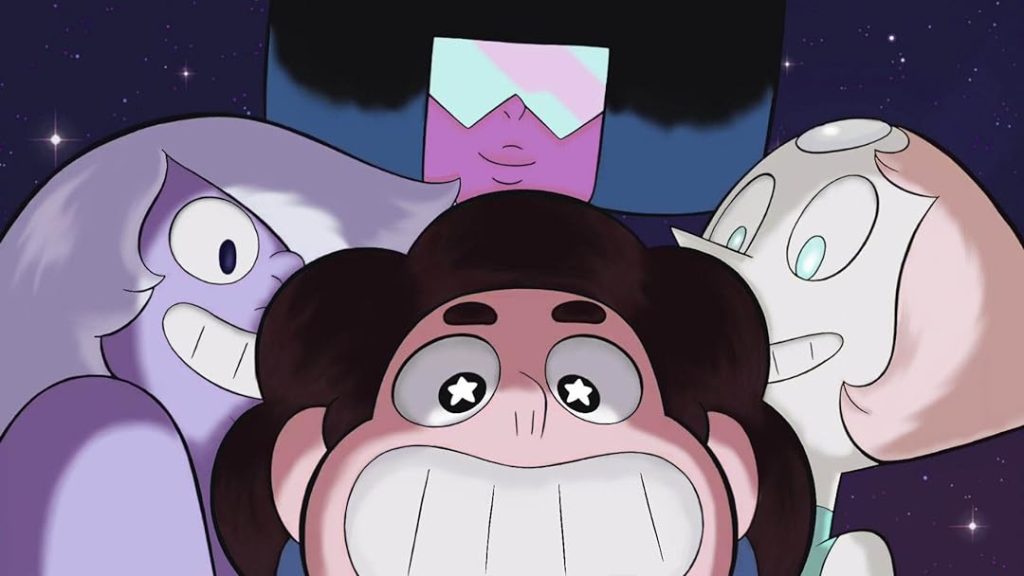
I’m honestly a bit late to this, but I finally got around to watching Everything, Everywhere, All at Once. Which, hit me a lot harder than I expected. I have a soft spot for family and family values and even though my own family situation isn’t the greatest (or maybe it’s because of that?), I’ve always found stories that depict the bonds between family members to be among the works that strike the most emotionally, like Wolf Children or Maquia.
Growing up in an Asian American household, intergenerational differences and misunderstandings were commonplace and often inevitable. Parents don’t actively choose to refuse to understand their children, they just often… can’t. Parents try to love their children in the way that they understand, but that can often be a heavy burden to bear. My parents had never really seen me for… me, just as their “son”. Not as the individual with his own hopes, dreams, and unique ways of thinking, but rather the son that was supposed to fulfill the familial duties that they expected of him. While I realize that it was never intentional, it was still suffocating and isolating all the same. Joy is one such child who tries her best to be herself in a difficult world, but is unable to be understood as “Joy”, to her mother.
This movie really gets it, and chooses to tell its story in such a bizarre, but thematically coherent and meaningful way. And the statement that it chooses to make in the face of everything is probably the most earnest and human choice that it could have made. This is something I’ve thought about from time to time, but I’ve always hoped that if I were to have children, that they’d be able to grow up in a world where they’re truly seen, understood, and accepted. Maybe I’d be the Evelyn in their lives that burdens them with my inability to understand their world, but just like Evelyn, I think I’d want to still try and be there with them, as difficult as that road may be.
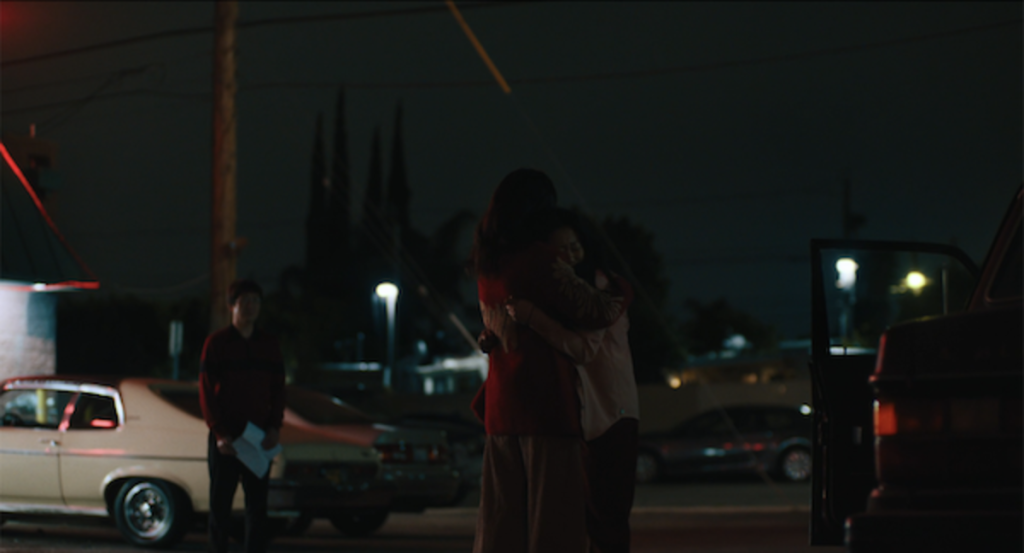
The last of the June batch was a film that I didn’t really know what to expect before going into, Manchester by the Sea, which was nothing short of devastating and quietly transcendent. I haven’t been able to stop thinking about it since watching it and in fact, it probably now ranks among my all time favorite films, along with the likes of Wolf Children and Eternal Sunshine of the Spotless Mind.
It’s difficult to try and unpack this film, as it conveys almost an entire human experience with such restraint and understatement. Maybe restraint isn’t the right word here, even if it wanted to try and more openly express the experiences of these characters, I don’t really know how it could. It’s only through the piercing portrayal of not knowing how to express these emotions that it so intimately captures the human experience. It’s those times where we stutter over our words, unable to formulate a correct response, those moments where we can only silently look away because we’re unable to face the situation, and the perpetual state of weariness and grief that follows devastating experiences that inform our most human experiences.
While I can’t fully understand the exact grief that Lee would’ve went through, there were many moments throughout the film that felt too real to me. This film hurt me more than almost any other media has, and it made me realize many things about how I’ve been hurt in the past. In particular, the scene with Lee and Randi was one of the most well acted, devastating, and human scenes that I’ve seen across all media. As painful as this film was, it’s also human in the ways where we can find warmth and maybe even a little hope in the small moments in our lives. Lee and Patrick often are unable to understand each other, but it never feels like they’re unable to connect, even just a bit . One of my favorite “warm” moments in the film was when Patrick, after seeing the framed photos of Lee’s former family, awkwardly asks a battered Lee if there’s anything that he could get for him. The way that Patrick tries to reach out, with its awkward pauses and body movements, felt intimately real and spoke so true to his character.
Manchester by the Sea doesn’t offer any easy answers about its grief and difficulties. Characters don’t entirely come to terms with the death of their loved one, interpersonal relationships don’t fully reconcile, the past remains an unconquered peak, and the anguish that follow their everyday lives seemingly doesn’t become any easier to handle. In spite of that, Lee, and many others, continue to live. Though it’s with great difficulty and uncertainty, they continue to live, experience, and grow. With no promises that things will get better or if their choices will work out, maybe all that we can do is to try and live, day by day. The film’s final scene of Lee and Patrick quietly fishing off the back of their deceased, but dear relative’s boat is one of quiet, ephemeral, and intimate beauty and pretty much a perfect ending to the film. Often, we can only wonder if things will get better, and I imagine that Lee and Patrick are still searching. But maybe there’s something special in merely being able to share that moment, and just maybe, they’ll be able to one day fish off the back of that boat with their days looking a bit brighter.
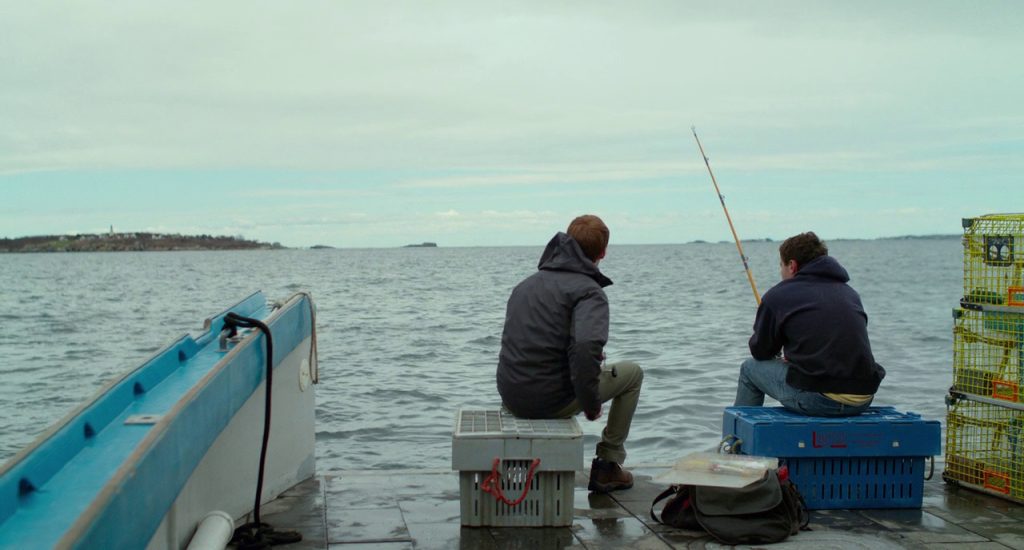
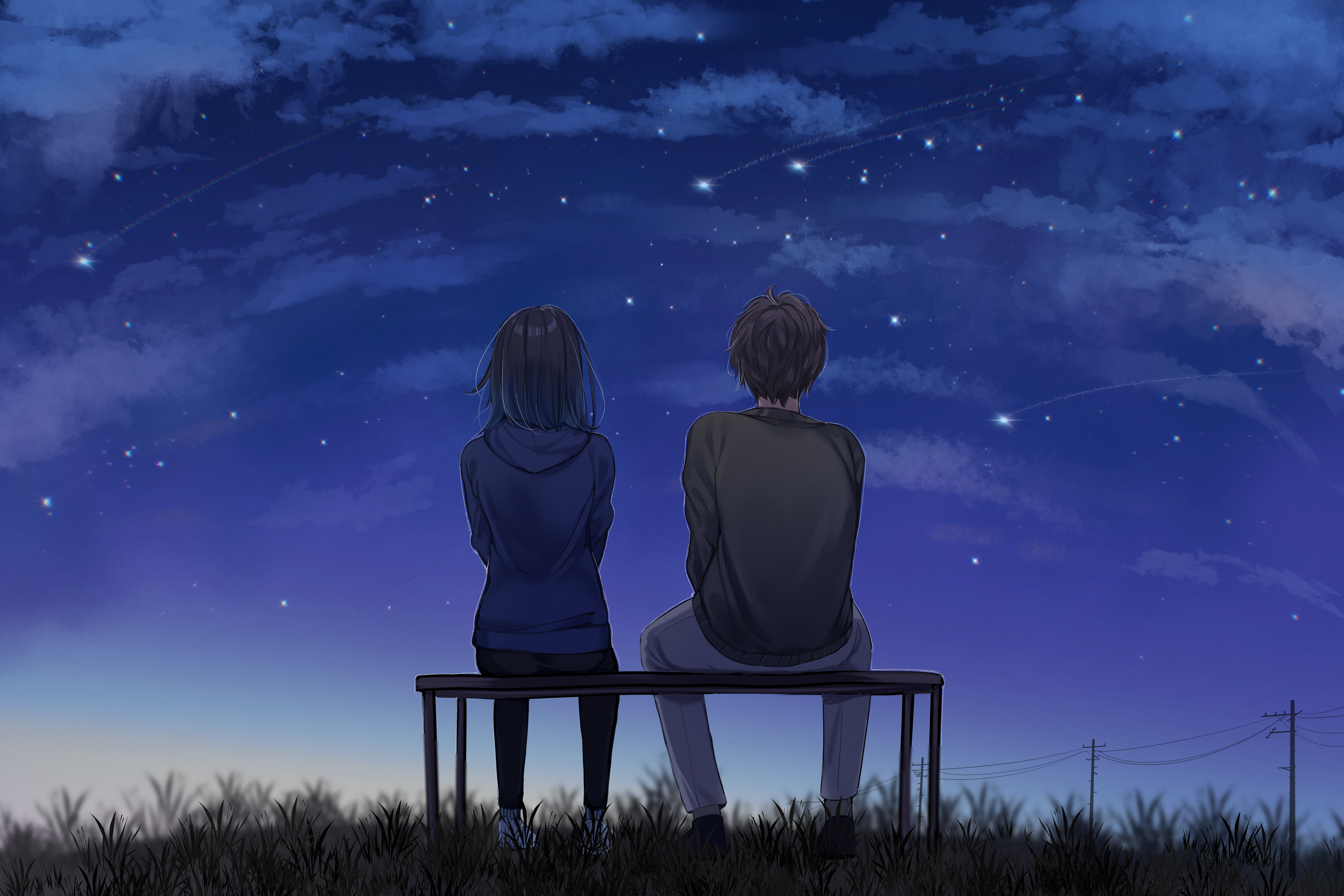
Leave a Reply